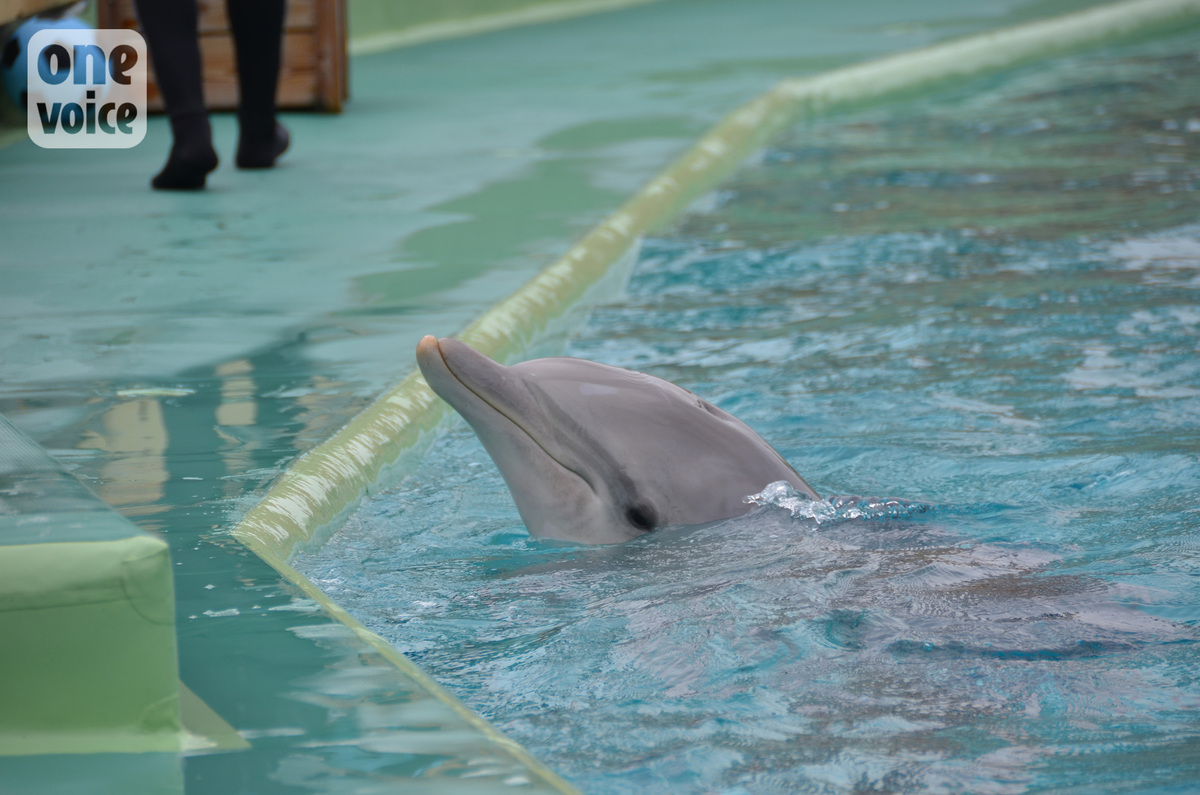

What did Aicko die of?
On January 5, the Tribunal de Grande Instance of Nantes will examine One Voice’s request for a judicial expertise to determine the causes of the death of Aïcko whose corpse was quickly sent to an animal disposal unit.
On November 6, 2016, the little Aikko died in solitary in his pool.
But what did the young dolphin die of when Park Asterix were praising his good health and vitality at the time he still lived with his mother?
What killed him? Is it a viral or bacterial pathology that could threaten other dolphins? Is it because of the harassment of Aikko by other adult dolphins? Is it stress due to captivity? Or the ingestion of toxic paint peeling from the walls of his pool, like Théa, who also died at Planète Sauvage? Deadly pathologies are surprisingly varied in dolphinariums, but we know nothing about what caused Aikko’s death. To date, no autopsy results have been reported as yet.
Since Galéo is better, thanks to the alert launched by One Voice, Aïcko became in turn the scapegoat for stressed adults. On October 29, advised by us, Dr. Naomi Rose, a world specialist in cetaceans, visited the Marine City of Planète Sauvage and declared: “Never
in my career have I seen such a lean captive dolphin.” We filed a
further complaint on behalf of Aikko on November 7, accompanied by
the full report of Naomi Rose. On November 2, One Voice was able to
film Aïcko, apparently in great distress, separated from the rest of
the group. These are the very last pictures we have of him …
On November 6, Aikko passed away. Curiously, his body was quickly delivered to the animal disposal unit. No definite reason has yet been given for his death. At the announcement of the death, the scientific director of the dolphinarium said: “Aïcko suffered from a loss of appetite for about 3 and a half weeks. He had been in intensive care for a week because he could no longer eat alone. He was suffering from a disease; it will be necessary to identify which one1.”
It is surprising under such conditions that Aikko was able to continue to participate in the show!
Muriel Arnal, president of One Voice, says, “Dolphinariums claim that they “offer” their captive dolphins excellent conditions of detention, which we challenge. It is time for France to become a country where dolphins are free to swim in the ocean. ”